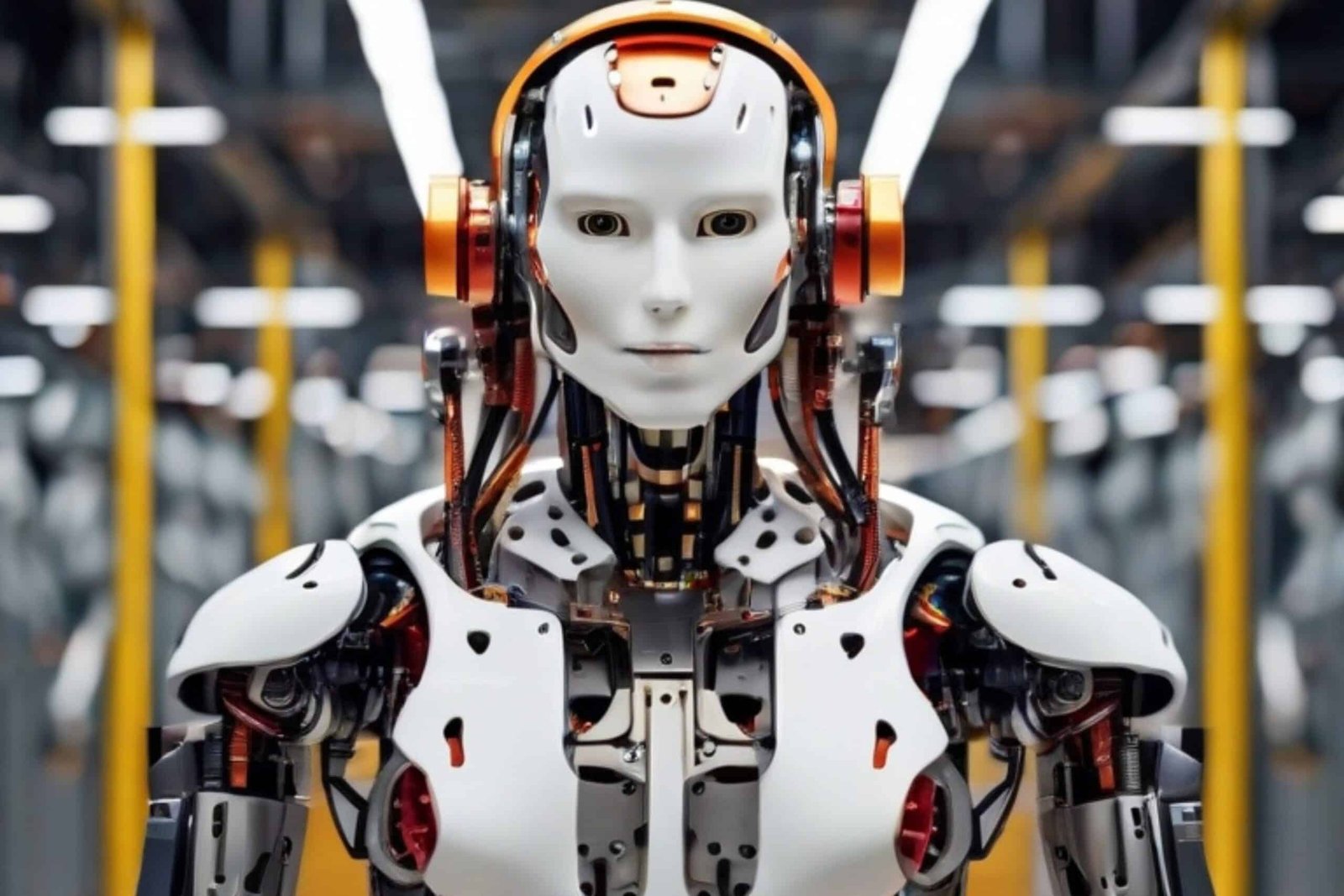
Blog
Robotics Revolution: AI’s Impact on Automation and Industry

The fusion of artificial intelligence (AI) and robotics is spearheading a revolution in automation, reshaping industries and enhancing operational efficiency like never before. AI is empowering robots to not only perform tasks with greater precision but also to learn, adapt, and make decisions in real time. This synergy is revolutionizing manufacturing, healthcare, logistics, and beyond, pushing the boundaries of what machines can achieve.
In this blog, we explore how AI is transforming the field of robotics, what this means for automation, and the industries leading this technological revolution.
1. AI-Driven Robotics: Beyond Traditional Automation
Traditional automation systems rely on pre-programmed instructions, limiting their flexibility. However, AI-powered robots can perform more complex and adaptive tasks. These robots are equipped with machine learning capabilities, allowing them to process data, recognize patterns, and learn from their environment.
- Machine Learning in Robotics: AI enables robots to learn from experiences, improving efficiency in real-time decision-making and task execution.
- Computer Vision: With AI, robots are now able to “see” their environment through advanced computer vision, making them more autonomous in navigating dynamic surroundings.
2. Impact on Manufacturing: Smart Factories
The manufacturing industry is one of the leading sectors adopting AI-driven robotics. Factories are becoming increasingly automated, with robots performing tasks once handled by humans.
- Precision and Speed: AI allows robots to handle intricate tasks, such as assembling electronics, with unmatched speed and precision, reducing errors and waste.
- Predictive Maintenance: AI-powered systems can predict when machinery will fail, allowing for proactive maintenance and reducing downtime in production.
3. Revolutionizing Healthcare with AI-Powered Robotics
In healthcare, AI-driven robots are transforming patient care and medical procedures. From performing precise surgeries to assisting in rehabilitation, AI is pushing the limits of robotic capabilities.
- Surgical Robots: AI allows for enhanced precision in surgeries, reducing recovery times and improving patient outcomes.
- Healthcare Assistance: AI robots can assist with patient monitoring, medication dispensing, and transporting medical supplies, reducing the workload on healthcare professionals.
4. Logistics and Supply Chain: Autonomous Robots
AI is making logistics and supply chains more efficient through the introduction of autonomous robots. These robots streamline operations by performing tasks such as sorting, packing, and transporting goods.
- Warehouse Automation: AI robots are improving inventory management by autonomously moving goods, sorting items, and handling shipments with efficiency.
- Self-Driving Vehicles: AI is enabling the rise of autonomous delivery vehicles and drones, optimizing last-mile delivery and reducing human intervention.
5. The Rise of Collaborative Robots (Cobots)
Collaborative robots, or cobots, are designed to work alongside humans. Unlike traditional robots, which require isolation for safety, cobots are equipped with AI to operate safely in shared spaces.
- Human-Robot Collaboration: AI allows cobots to assist workers in tasks like assembly, lifting heavy objects, or performing repetitive actions, enhancing productivity and reducing workplace injuries.
- Reskilling Workforce: As robots take on more mundane tasks, workers are being reskilled to manage and operate these advanced systems, focusing on tasks requiring human creativity and problem-solving.
6. AI and the Future of Robotics
As AI continues to advance, the future of robotics holds exciting possibilities. From autonomous robots navigating unpredictable environments to intelligent assistants that can seamlessly interact with humans, AI is unlocking the full potential of robotics.
- Enhanced Autonomy: Future AI-powered robots will have even greater autonomy, performing complex tasks in environments that are difficult or hazardous for humans.
- Ethical and Security Concerns: As robots become more integrated into everyday life, ethical questions surrounding job displacement, privacy, and the security of AI systems will need to be addressed.
Conclusion
The robotics revolution, driven by AI, is transforming the world of automation. From smart factories to healthcare and logistics, AI is enhancing the capabilities of robots, making them more efficient, intelligent, and adaptable. As this technology evolves, industries across the board will benefit from increased productivity and innovation, ultimately reshaping the way we work and live.

